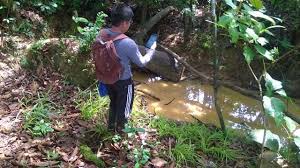From access to poverty and other accessibility
- Hnasmdro
- junio 5, 2024
- MDR Experiences
- 0
- 95

At the beginning of May, the National Institute of Computer Statistics (INEI) of Peru virtually published the poverty figures in our country. According to journalistic reports and the testimony of the Head of the entity, the publication had been delayed at the express request of senior government officials, and they were also uploaded to the website without any prior conference as scheduled. The situation had been very well thought out, because how to communicate, in the midst of popular mistrust, that poverty went from 20.0% to 20.9%, that there are 600,000 new poor people and that these figures are higher than in the harsh years of the pandemic?
When it comes to understanding the historical phenomenon of poverty, it is often said that it is due to different factors that result in the word “accessibility.” There are those who do not have access to basic services, to comprehensive health services, to transportation and means of connectivity, to a variety of foods that balance the recommended diet, to study, to culture, to work and a long, etc. Without accessibility, poverty increases. But there is one issue that, however, has reached levels of accessibility never seen before: that of access to media. A couple of days ago, listening to a popular radio station in our country, a teacher called with the Internet from a small school far from Puno. There is no telephone, there is no FM, but there is Internet. I have also seen how in remote places in the jungle, where there are no motorcycle nor car because of there is no access of roads, and one must walk in the midst of slippery road and exhaustion. The system of Internet managed to arrive before electricity itself. And our mission group will soon visit the Kugapakori Reserve area of Lower Urubamba, neighboring populations that have decided to live in voluntary isolation, and where we are told that there is already Internet there as well. The procedures to allow us to enter are so protocol, but there is already a connection.
Never before, the Internet is entering everyone’s lives. The little ones handle a cell phone much better than their parents. And older adults have learned out of necessity to use social networks, so much so that young people in the first decade of the 2000s abandoned Facebook for platforms where they do not feel watched. And more and more applications will be invented that come together in interactive connection processes that challenge entire populations and that will continue to make the Internet a phenomenon much more attractive and more accessible than health itself, basic services, food, study and a long etc.
It is true that the Internet offers us a range of possibilities for self-teaching, that by watching tiktoks, reels, YouTube videos or rereading comments on publications, many found answers to situations that some educator could not offer. It is true that the Internet has changed the way we know, investigate, learn, relearn and rethink the world and possible individual worlds, but have you not wondered if we are managing to get out of the social-economic poverty that is a national and global situation? visible and that requires more accessibilities that are not just technological? Great leaps of “progress” have been made that have reached the Moon and are looking for water on other planets, on a planet where there is water, but not for everyone. As our leaders, disconnected from statistics, seek to self-justify their cover-ups, ostentations and partisan struggles, increasingly accessing spirals of corruption, I hope this year’s challenging figures can, rather, connect us with our reality.
Fr. Joel Alfonso Chiquinta Vilchez
Dominican missionary priest in Bajo Urubamba
